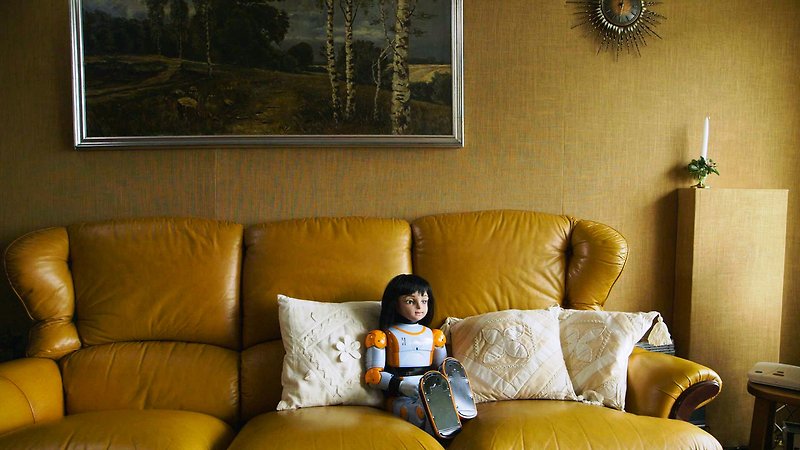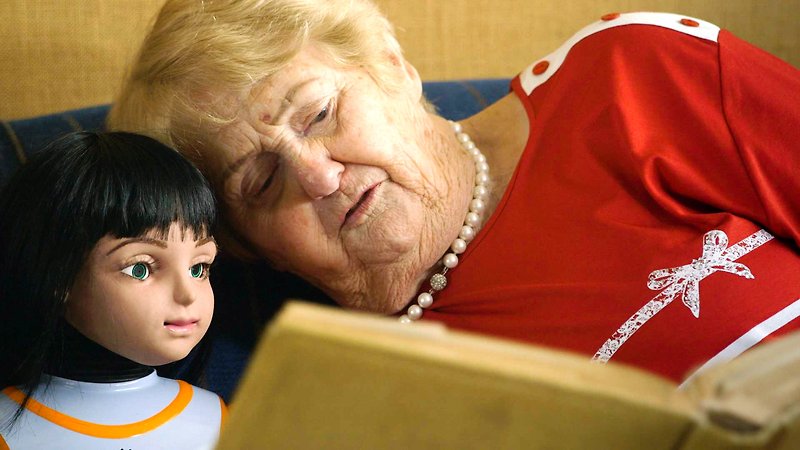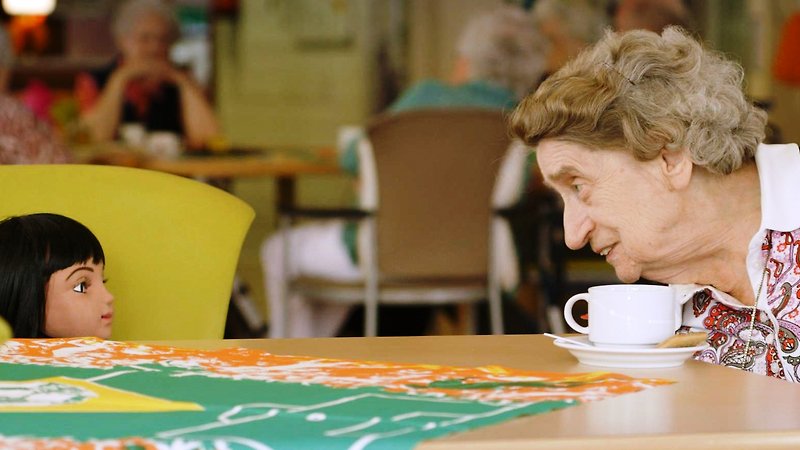Can a robot establish a ‘human’ relationship with someone? In this account of a Dutch pilot study, we see three elderly women become attached, with varying degrees of resistance, to a caredroid named Alice.



In order to meet future care needs for elderly people who are lonely or suffering from dementia, Amsterdam researchers are fine-tuning robots to play helpmate and companion.
Screened as part of NZIFF 2015
Alice Cares 2015
Ik ben Alice
Alice is here to help, or at least she will be soon. A 60-centimetre tall robot, with a doll-like face, a camera behind her eyes, and the body of, well, a robot, Alice, made by the American firm Hanson Robotic, is being programmed by a research group at Amsterdam’s Free University to provide companionship and assistance to elderly people living alone.
This doco accompanies three Alices separately placed on a pilot scheme with three women in their 80s, and observes the markedly different relationships that develop. ‘I’d prefer a real person’, says one as Alice is settled in. ‘Oh, that’s a shame’, Alice replies, and gradually curiosity overcomes resistance and a conversation is underway. Meanwhile, researchers inspect the robot-eye evidence and fall upon every pause or glitch in robot response as a programming challenge. Experienced health-care workers called in for advice about elderly needs are both apprehensive and sceptical about the likelihood they will be replaced by the caredroids.
Barely editorialising for a moment, this simple account of android life in the real world turns out to be the most profound, heartrending and morally challenging film about artificial intelligence yet.